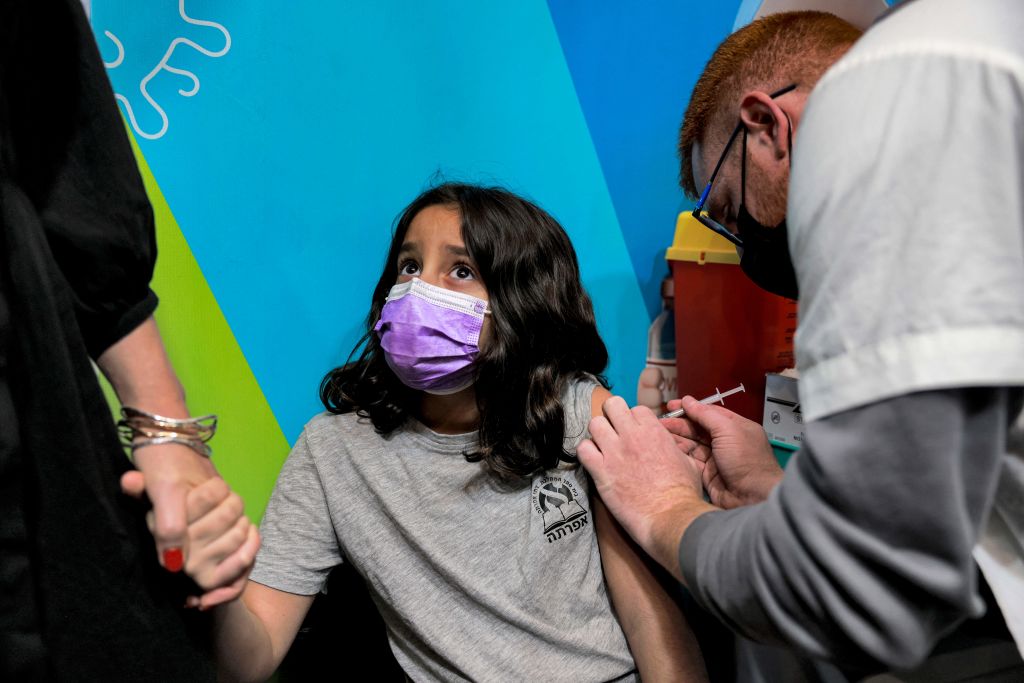
Common sense and our experience show that prevention is much better than treatment. Gone are the days of children paralyzed from polio. Gone are the days of many children having devastating meningitis. Gone are the days of not being able prevent hundreds of children per year dying from influenza. Such is the value of preventative medicine, especially due to vaccination.
Like most things in medicine, we must balance the risks and benefits in making decisions for all patients, especially children. Early in our response to COVID-19, we had to make decisions with incomplete information. Two years of both providing care and conducting research has provided us with extensive information about COVID-19. The medical and scientific communities have also given us clear facts to set the record straight about the risks and benefits of COVID-19 vaccines in children.
Sadly, in the U.S. there have been more than 1000 pediatric deaths and more than 7,400 cases of children with the unusual condition called multisystem inflammatory syndrome in children (MISC) due to COVID-19. We also are just learning about long-COVID in children, many of whom have not been hospitalized, and may have extreme fatigue, headaches, and “brain-fog,” which can persist for months after COVID-19.
For individuals less than 15 years old, COVID-19 is now the sixth leading cause of death in the U.S.. In comparison, when there is a very bad influenza year, up to 200 children will die and 20,000 hospitalized. In part due to influenza vaccines, deaths due to influenza, are thankfully no longer a top 10 cause of death in children.
It is true that children generally fare better with COVID-19 than adults. Patients younger than 18 years old are four-times less likely to need hospitalization than patients older than 65 years and are 65-times less likely to die from COVID-19. However, children do become ill and die from COVID-19. During the recent Omicron wave more than 4.8 million children were infected and more than 30,000 were hospitalized. About 20% of children hospitalized during the recent Omicron wave needed care in intensive care units. The overwhelming majority of these children were not vaccinated.
Some people suggest that severe COVID-19, which mean cases needing hospitalization or resulting in death, only affects children who have underlying medical conditions. This is wrong. Nearly 40% of children with severe COVID-19 do not have underlying medical conditions. Conditions that increase a child’s risk for hospitalization include asthma, obesity, and diabetes, to name a few. Importantly, mental health issues, including anxiety and depression, have been found to be associated with severe COVID-19. Recent studies also suggest that more than half of children with previous COVID-19 infections do not have antibodies more than six months after infection, suggesting that prior infection may not be protective. Thus, from a physician’s point of view, to protect children from severe COVID-19 and death, it is impossible for us to say one child should have the vaccine but not another.
More and more data show that the current COVID-19 vaccines that have FDA approval for children are very effective in reducing the risk of getting severe COVID-19. Recent peer reviewed studies show these vaccines are 70 to 90% effective in preventing children between 5 and 17 years from being hospitalized if the child has two doses, and another recent study also shows protection against severe illness. In the U.S., for every 100,000 children with COVID-19, 700 to 900 are hospitalized. This means is that for every 100,000 fully vaccinated children, more than 500 hospitalizations will be prevented. It means that pediatric deaths and the risk of MISC and long-COVID will be reduced, as well. Having fewer cases of COVID-19 in children means that there will be less spread of the virus to classmates, teachers and family members, some with medical conditions that put them at greater risk for severe disease.
It is always important to balance the value of an effective vaccine with potential side effects. We now have data related to 37 million doses of COVID-19 vaccine given to children between 5 and 17 years old. Non-serious side effects that include dizziness, headache, and fever, occur in about 5 per 10,000 children. Serious side effects, which largely include heart inflammation, or myocarditis, occur in 1 per 1,000,000 vaccine doses. These risks are incredibly low when compared to the risk of hospitalization and death for a child who gets COVID-19.
Rightfully, there has been concern raised about the relationship between the COVID-19 vaccine and myocarditis. Here too we have lots of information about this risk. In the highest risk group, teenage boys, the rate of myocarditis after vaccination is 5 per 100,000 vaccine doses, there have been no deaths in individuals less than 30 years and cases generally have a full recovery. In comparison if somebody younger than 16 years old gets COVID-19, the risk of myocarditis is 130 per 100,000. The myocarditis risk for children is thus 25-times higher if you get COVID-19 compared to the vaccine.
At a time when the public will be taking a larger role in the control and prevention of COVID-19, it is important that parents, children, and healthcare providers have facts that are accurate. For those facing the decision about whether they should vaccinate their child against COVID-19, consider the facts and speak with your healthcare provider about the risks and benefits. Imagine how many children would now be paralyzed from polio, suffer the consequences of meningitis, or die from influenza, if their parents did not balance the risks and benefits of pediatric vaccines.
More Must-Reads from TIME
- Cybersecurity Experts Are Sounding the Alarm on DOGE
- Meet the 2025 Women of the Year
- The Harsh Truth About Disability Inclusion
- Why Do More Young Adults Have Cancer?
- Colman Domingo Leads With Radical Love
- How to Get Better at Doing Things Alone
- Michelle Zauner Stares Down the Darkness
Contact us at letters@time.com